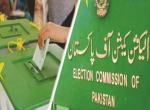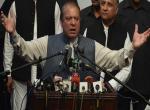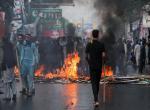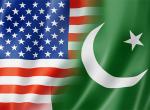It is easy to take the position that we must have a dialogue with Pakistan. It can be argued that as Pakistan is a neighbour, and cannot be wished away, we have to talk to it whatever the provocation. Not talking will not make it more disposed to settle existing problems, including that of terrorism. On the contrary, the absence of a dialogue gives those against friendship with India more room for their negative policies. Elements of Pakistan’s civil society who favour improved India-Pakistan ties and are concerned about the direction the country is headed because of its current policies get further marginalized if India refuses to talk to Pakistan. India’s own economic development and global rise requires normalisation of ties with its neighbours. After a point the policy of no dialogue gives decreasing returns and becomes unsustainable. Not talking to Pakistan also exposes us to international pressure as the rest of the world, nervous about hostility between two nuclear neighbours, wants the two to be seen talking.
But are many of the premises of the unconditional pro-dialogue votaries necessarily correct? Having a dialogue cannot be an end by itself. It has to lead somewhere. It cannot be an endless process, unrelated to the emergence of results. Talking to an adversary cannot be the sole content of policy. It can be part of an integrated approach, with alternative courses of action thought out, so that a desire to talk is not seen as helplessness, lack of another option, inability to take hard decisions or the result of external pressure.
The dialogue-seekers in india overlook the fact that India has already engaged Pakistan in a dialogue. Those who say on our side, echoing the Pakistani line, that we should now go beyond Mumbai, disregard the reality that the Indian leadership has already politically transcended the Mumbai terror carnage. India engaged Pakistan in a dialogue at Ekaterinaberg, New York, Sharm el Sheikh, Delhi, Thimphu and now again at Islamabad with FS level talks and those at the level of Home Ministers. The Foreign Ministers of the two countries will meet in July in Islamabad.
What have these dialogue initiatives produced so far? Pakistan has been progressively defiant on Hafeez Saeed, who is free to pour venom against India. Pakistan’s reluctance to act against Hafiz Saeed is because of its unwillingness to take action against Panjab based jihadi groups. It is not Hafiz Saeed that is important, but what he represents. It is the political will to deal with these instruments of Pakistan’s state sponsored terror that is under test.
In response to our dialogue moves Pakistan has enlarged the scope of confrontation with India by conniving at terror attacks against the Indian mission and aid personnel in Kabul. It has accused us of interfering in Baluchistan and even in FATA through our consulates in Afghanistan. It seeks a lowering of our legitimate presence in Afghanistan. It continues to harp on the threat to its security from India from the east. To all this has been added an artificially drummed up water issue. Public hysteria has been generated by charges that India is starving Pakistan of water through violations of the Indus Waters Treaty. Pakistan has begun talking again on settling the Kashmir issue on the basis of the UN Resolutions.
Internationally, Pakistan has tried to promote controversy over the India-US nuclear deal, seeking to present itself as a victim of India’s nuclear ambitions supposedly boosted by the deal. Its Permanent Representative to the Conference on Disarmament launched a diatribe against the deal earlier this year, arguing that it had had created a serious nuclear imbalance in South Asia, and cynically used this excuse to block the discussions on the FMCT in Geneva.
If we must have a dialogue with Pakistan we must also reflect on our bottom lines. Otherwise we will be talking without a sense of purpose and clarity about our goals. There is confusion about where we actually stand on the issue of terrorism. At times we are ready to delink dialogue from terrorism. At other times we restore the link partially by saying that Pakistan must create an atmosphere free from terror for any dialogue to succeed. We talk at times about the need for Pakistan to dismantle the infrastructure of terrorism from its soil, at other times we lower the demand by asking Pakistan to merely take “reasonable” steps to put curbs on terrorism. We repeat as a mantra that Pakistan must expeditiously bring the perpetrators of the Mumbai attack to justice, but tolerate Pakistan’s delaying tactics in trying the accused. We flounder between hope and reality.
While a meeting between the two Prime Ministers at Thimphu was entirely in order, the need to resume the dialogue in the absence of any evidence of Pakistan’s willingness to deal credibly with the core issue of terrorism was not apparent. Prime Minister Geelani’s assurance to our PM that Pakistan would not allow its soil to be used for terrorism against india has been made public by our side, not the Pakistani side, and hence has little value. We are projecting a constructive Pakistani position, not Pakistan itself. Why? What is unclear is why we believe such an assurance, as it is the same Mr Geelani who some months ago said that Pakistan, itself a victim of terrorism, could not guarantee that terrorist attacks will not take place against India from its territory.
The External Affairs Minister was reported as having stated after Thimphu that Pakistan had satisfied us on our terrorism concerns. But the Home Minister’s tone has hardened. He has exposed more areas of Pakistani non-performance and enlarged the scope of Indian demands on Pakistan. He has stated that only two of those arrested by Pakistan in connection with the Mumbai attack are frontline people. He wants action against the real handlers and controllers, including Hafiz Saeed. He has ruled out sharing intelligence with Pakistan as that would compromise our intelligence gathering, burying the much touted Joint Terror Mechanism. At the end of his visit he has sensibly talked about the importance of outcomes not assurances.
The stated purpose of the current India-Pakistan dialogue is to reduce the trust deficit between the two countries. It has been described as an essay in mutual comprehension. This suggests that there are genuine gaps in understanding that can be filled by talking to each other. There is, in this perspective, no historical baggage, no wounds of partition, no determination to wrest Kashmir from India or make India pay for its wrongful occupation of the terroritory that should be rightfully Pakistan’s, no obsession with parity, no religious animosity, no issue of revenge for Bangladesh, no vested interests like the domination of the military within the system that impede friendship between India and Pakistan. In actual fact, we comprehend well what animates Pakistan against India. Trust can be restored if in the last sixty three years we periods of trust in our relationship. Comprehension can be built if the differences were not of a well-understood, fundamental nature. Pakistan has to radically change its thinking and policies towards India for the current trust and comprehension exercise to succeed.
The writer is a former Foreign Secretary([email protected])




.jpg)




Post new comment